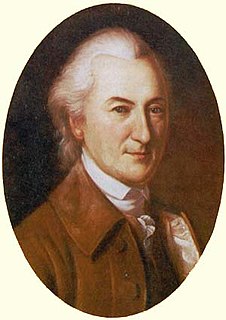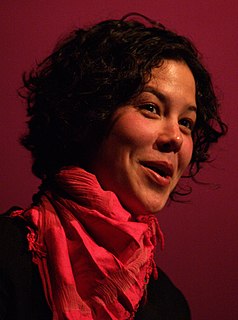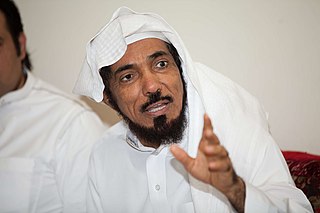A Quote by Emilia Lanier
Then let us have our libertyagain, And challenge to yourselves no sovereignty. You came not in the world without our pain, Make that a bar against your cruelty; Your fault being greater, why should you disdain Our being your equals, free from tyranny?
Related Quotes
Without you, without your onslaughts, without your uprootings of us, we should remain all our lives inert, stagnant, puerile, ignorant both of ourselves and of God. You who batter us and then dress our wounds, you who resist us and yield to us, you who wreck and build, you who shackle and liberate, the sap of our souls, the hand of God, the flesh of Christ: it is you, matter, that I bless.
It is our own pain, and our own desire to be free of it, that alerts us to the suffering of the world. It is our personal discovery that pain can be acknowledged, even held lovingly, that enables us to look at the pain around us unflinchingly and feel compassion being born in us. We need to start with ourselves.
Literature gives us models of living human beings who may not agree with us and even be our enemies. D. H. Lawrence said that the purpose of literature was to expand our sympathies. To be a human being is to be in a state of tension between your appetites and your dreams, and the social realities around you and your obligations to your fellow man. And this conflict cannot be easily reconciled. The tension is always there as a kind of a pain in the human condition.
Stanford may be the best university in the world, but you can get all the way through here without knowing where your food came from, without being able to say where we came from, without being able to give a coherent description of why the climate is changing and why we should be concerned about it. So I started teaching a course in human evolution and the environment that's open to all Stanford students, no prerequisites.
Envy, my children, follows pride; whoever is envious is proud. See, envy comes to us from Hell; the devils having sinned through pride, sinned also through envy, envying our glory, our happiness. Why do we envy the happiness and the goods of others? Because we are proud; we should like to be the sole possessors of talents, riches, of the esteem and love of all the world! We hate our equals, because they are our equals; our inferiors, from the fear that they may equal us; our superiors, because they are above us.
There's only one why. You only have one why, and your why is fully formed by the time you're 17, 18 or 19years old, maybe even earlier. The rest of your life are simply opportunities to either live in or out of balance and the career choices we make and the decisions we make in our lives either put us in balance with our why, which makes us happy, fulfilled and inspired. Or it puts us out of our why, which makes us frustrated, stressed out and sometimes we fail.
Let these truths be indelibly impressed on our minds — that we cannot be happy, without being FREE — that we cannot be free, without being secure in our property— that we cannot be secure in our property, if, without our consent, others may, as by right, take it away — that taxes imposed on us by parliament, do thus take it away.
This is a very fundamental reason why man cannot become meditative - or why very few men have dared to become meditative. Our training is of the mind. Our education is for the mind. Our ambitions, our desires, can only be fulfilled by the mind. You can become president of a country, prime minister, not by being meditative but by cultivating a very cunning mind. The whole education is geared by your parents, by your society, so that you can fulfill your desires, your ambitions. You want to become somebody. Meditation can only make you a nobody.
We are a free people; and now you have planted in our country the title deeds of our future slavery. You are neither god nor demon; who are you, then, to make slaves? Orou! You understand the language of these men, tell us all, as you have told me, what they have written on this sheet of metal: This country is ours. This country yours? And why? Because you have walked thereon? If a Tahitian landed one day on your shores, and scratched on one of your rocks or on the bark of your trees: This country belongs to the people of Tahiti - what would you think?
Abortion is the insurance against that fate worse than death which is called a family. Our no-fault insurance has removed our responsibility for car accidents, and no-fault divorce has removed our responsibility for marriage accidents; why should abortion not be our no-fault sexual insurance policy that removes our responsibility for sex accidents?
In school you teach us not to fight with others, to work things out, to respect others, to clean up our mess, not to hurt other creatures, to share, not be greedy. Then why do you go out and do the things you tell us not to do? You grownups say you love us, but I challenge you, please, to make your actions reflect your words.
The greeting of peace (as-salamu 'alaykum) has many meanings. One of these meanings is that the person you are greeting will be safe from you (from your tongue, your heart, and your hand) and that you will not transgress against that person with your words or your deeds. This greeting is also a prayer for peace, safety, mercy, and blessings. We should take these noble meanings, which we so often say with our tongues, and make them our way of life in our dealings with other people.
If we can forgive everyone, regardless of what he or she may have done, we nourish the soul and allow our whole being to feel good. To hold a grudge against anyone is like carrying the devil on your shoulders. It is our willingness to forgive and forget that casts away such a burden and brings light into our hearts, freeing us from many ill feelings against our fellow human beings.
Being able to just stick to our instincts and honor the [Hunger Games] books and find a way to stay the course of trying to make the best possible decisions that you would make creatively on any movie, without having your head turned too much by all of the interest, has been a great challenge. It's the best challenge you could ask for, but that was a big challenge.







































